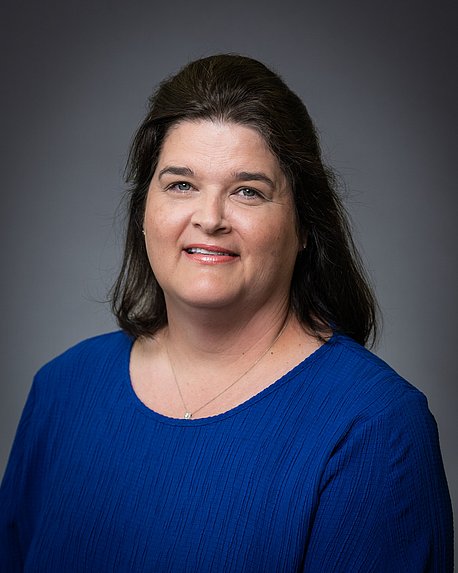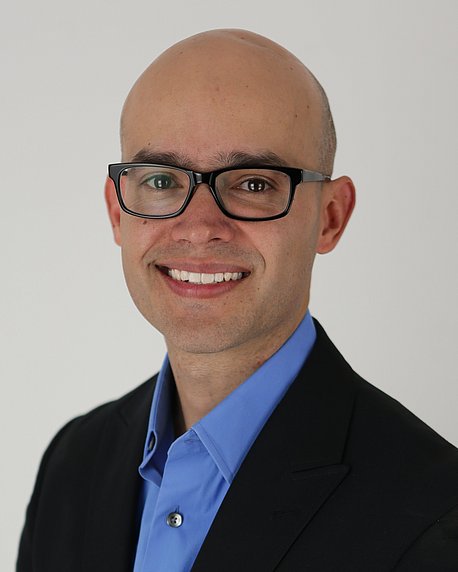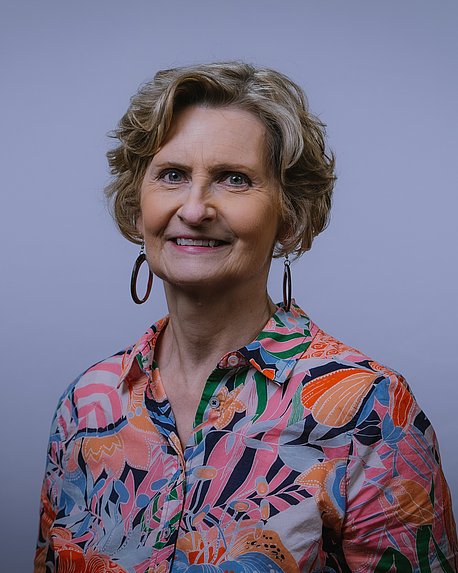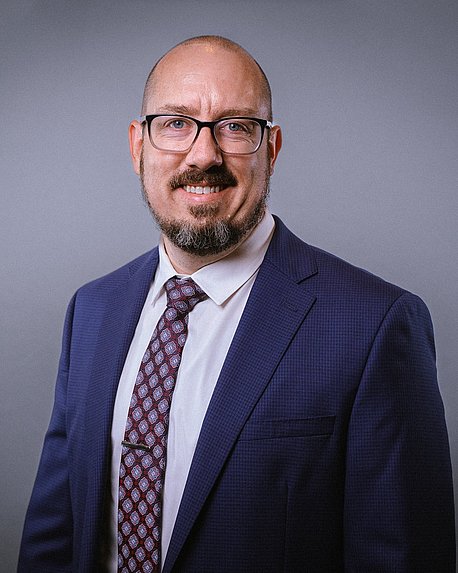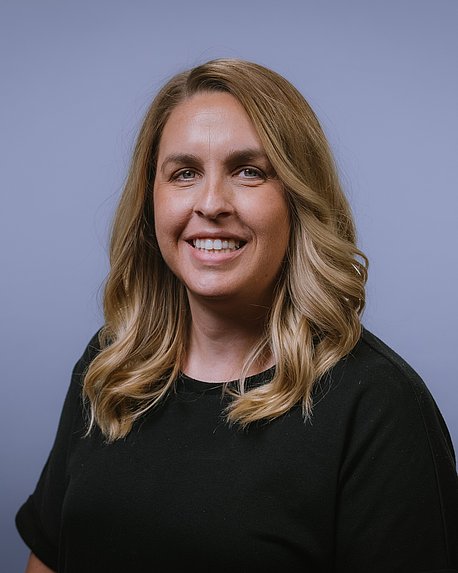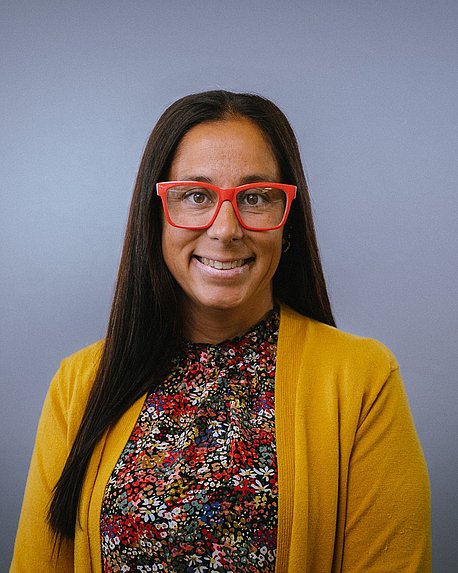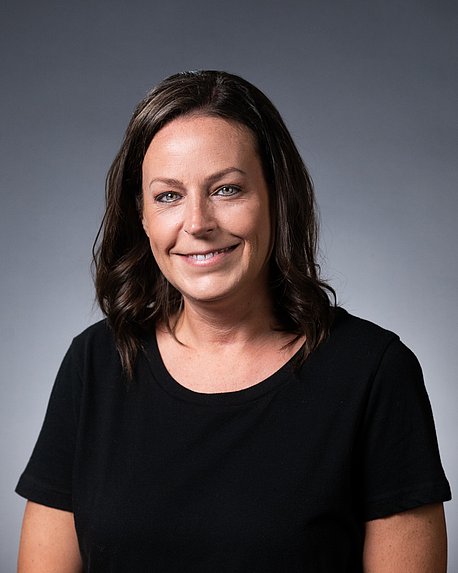
The Clinical Mental Health Counseling Program at LCU prepares individuals to become counselors who can serve in a variety of clinical settings such as mental health or social services agencies or private practice. The CMHC program fulfills the academic requirement for licensure as a professional counselor in Texas and other states. The program is delivered in an online format.
Request Info
View information, forms, links, and other resources for the Clinical Mental Health Counseling program.
Individuals applying to the Counseling Program will submit:
- Submit application to the LCU Department of Behavioral and Social Sciences.
- Pay $60 application fee online.
- Financial Responsibility Agreement
- Official copies of transcripts from each accredited institution of higher education including evidence of successful completion of the bachelor's degree with a minimum 3.0 GPA (4.0 scale) on all graduate coursework. Transcripts should be sent to LCU Graduate Admissions.
- A professional resume.
- Three letters of recommendation from people who can attest to the applicant’s leadership experience or potential. At least one of whom should be the applicant’s current supervisor. The other(s) should be previous undergraduate, advisors, or others who can substantiate the applicant’s academic preparation for admittance to a master's degree program. No relatives or faculty members from the Behavioral Sciences department are accepted.
- A written Personal Statement
- FERPA Form
- Interview with the Behavioral Sciences faculty
$760 / Credit Hour with some additional fees
Complete FAFSA for financial aid opportunities.
Contact LCU’s Financial Aid Department at 806.720.7176
Additional Scholarship opportunities available.
Applications are due 1 month before the start of the semester. We offer rolling admissions, so we admit Fall, Spring and Summer.
All admission documents must be submitted to LCU Graduate Counseling before eligibility for an interview may be determined.
NOTE: Graduate Record Examination (GRE) & Graduate Management Admissions Test (GMAT) are not required for admission to the Graduate Counseling Program
Graduates from this program will receive the academic and experiential foundations that will enable them to specialize in a variety of counselor roles, such as community mental health counselors, pastoral counselors, drug and alcohol counselors, trauma counselors, college counselors, and relationship counselors. The program has the goal of providing educational foundations that enable its graduates to enter professionally-satisfying careers, serve others to the best of their abilities, and develop a capacity for intellectual, professional and personal growth.
The CMHC program promotes the following goals:
- To attract diverse, outstanding graduate students.
- To help students attain a scholastic competency in all coursework.
- To facilitate the acquisition of, and ability to, apply counseling skills with a diverse population to a standard acceptable by licensed professional counselors including: a) Demonstration of emotional and mental stability and maturity in interaction with others b). the ability to maintain healthy boundaries, c). communicate appropriately, d). successfully manage personal anxiety or uncomfortable feelings, e). work collaboratively with others and f). resolve interpersonal conflict.
- To encourage an understanding and commitment to the scientist practitioner model.
- To assist students in their adherence to the Professional Identity and Standards outlined by the American Counseling Association’s Code of Ethics and Lubbock Christian University’s Code of Community Standards, and
- To encourage the ability to integrate faith and spirituality into counseling where appropriate in an ethically competent manner.
The Lubbock Christian University Mental Health Counseling program is starting to gather data with the intentions of applying for CACREP accreditation in the future. This means we are making changes to our program in order to work toward meeting the accreditation requirements. All students in the Mental Health Counseling program must be proficient in the eight CACREP counseling areas. Proficiency is achieved and assessed through coursework, field experience, evaluations, examinations, case study conceptualizations, observations, experiential activities, and Comprehensive Examinations required for each emphasis.
The Clinical Mental Health Program promotes the following objectives:
- To create a learning environment that fosters student self-awareness and personal growth, creative and innovative instructional practices, individualized field placement, collaborative supervision, and opportunities for student feedback toward program improvement. Including:
- 1. Appropriate communication with faculty, staff, students, and other individual interactions during clinical coursework; 2. The ability to appropriately manage academic stress, personal concerns, and unpleasant feelings; 3. Display emotional and mental maturity, and the ability to execute and maintain healthy boundaries; 4. Demonstrate collaboration and conflict resolution with others; 5. Be open to accepting and applying feedback
- To increase knowledge in the counseling profession and related helping professionals.
- To increase knowledge and commitment to the ethical practice of a professional Code of Ethics, including the American Counseling Association Code of Ethics, American School Counseling Association Ethical Standards for School Counselors, American Association of Christian Counselors Code of Ethics, or the American Association for Marriage and Family Therapy Code of Ethics.
- To apply knowledge, skills, and develop competencies in counseling when working with different social and cultural identities, including assessment, treatment planning, intervention, and outcome evaluation.
- To evaluate and assess collaboration, equity, inclusion, social justice, and advocacy capabilities for culturally diverse populations including:
- Ethnicities, races, religions, gender identities, sexualities, abilities, classes, and other marginalized or underserved populations
- Become knowledgeable in the theories of counseling and psychotherapy, personality, lifespan development, career development, group dynamics, and diagnosis and treatment planning.
- To encourage the integration of wellness, faith, and spirituality into counseling appropriately and ethically.
- To increase knowledge in the foundations of research and inquiry including program evaluation, assessment, treatment planning, intervention, and outcome evaluation.
- To foster theory-driven and evidence-based skill development toward proficiency as an entry-level counselor.
- To integrate the knowledge, abilities, and application of counseling skills with culturally diverse populations that meet the required standards set by the Texas Behavioral Health Executive Council for licensed professional counselors or marriage and family therapists; or meet the state requirements set by the Texas State Board for Educator Certification for Certified School Counselors.
CMHC Graduates by Academic Year
| 2016-2017 | 2017-2018 | 2018-2019 | 2019-2020 |
|---|---|---|---|
8 | 20 | 19 | 13 |
LCU’s Clinical Mental Health Counseling (CMHC) program’s first enrollment period was Fall 2013. The estimated completion time for the CMHC program is 11-12 semesters, with a handful of students graduating in as few as 9 semesters. 100 students enrolled between Fall 2013 and Spring 2015. Twenty-four of these students graduated in the estimated completion time. Eight of the 100 enrolled students changed majors and graduated with degrees from related programs within LCU’s Department of Psychology and Counseling.
2018 LCU CPCE pass rate: 98%
2019 LCU CPCE pass rate: 98%
2020 LCU CPCE pass rate: 100%
Out of 20 participating alumni, 17 indicated jobs within the field of counseling or positions in which they are accruing hours for licensure.
5302 Foundations of Clinical Practice.
Intensive overview of therapeutic interventions for working with children, adolescents, and their families. Students will learn about the historical context, current research about issues related to this population, and ethical and legal considerations. The course will include information on developmental psychopathology as well as techniques and strategies from various theories and approaches, including systemic, Adlerian, behavioral, cognitive, humanistic, and psychodynamic.
5311 Lifespan, Development, and Human Sexuality.
Examination of the stages of normal human growth and development as they occur in the context of the family life cycle. Consideration will be given to how the various tasks, transitions, and events impact individuals and families at different stages of life. Human intellectual, physical, social, sexuality, and emotional development from prenatal origins through adulthood will be examined. Students will integrate a linear individual perspective to human development with a systemic family perspective.
5314 Assessment of Individuals and Families.
Examination of the major individual, marital, and family assessment strategies and instruments. Students will receive training in the use of both testing and non-testing approaches to assessment and appraisal. Attention will be given to the relationship between assessment, diagnosis, and treatment planning.
5322 Research and Program Development.
Introduction to the important concepts related to research and program development within the counseling profession. Students will learn common research designs, how to construct research questions, develop a literature review, and information on program evaluation. Current published research will be used to examine different paradigms, research methods, statistics, procedures, and findings. Students will develop research questions and learn how to write literature reviews for topics related to the counseling profession while considering ethical and legal principles. Student will learn how to conduct, interpret, and report research results in culturally and developmentally appropriate ways.
5340 Professional Issues, Ethics, and Law.
Focuses on the development of a professional attitude and identity as a marriage and family therapist and a professional counselor. Areas of consideration will include professional socialization, the role of professional organizations, licensure and certification, legal responsibilities and 250 liabilities of clinical practice and research, family law, confidentiality issues, codes of ethics, the role of the therapist in court proceedings, and inter professional cooperation.
5353 Psychopathology of Individuals and Families.
Detailed overview of psychopathology and analysis of psychopathology in educational and counseling settings. Students will receive training in the use of the DSM-5 and its application. Diagnostic and treatment planning skills will be facilitated through the use of case studies.
5356 Advanced Psychopathology, Diagnosis, and Treatment Planning.
Detailed study of the current edition of the Diagnostic and Statistical Manual of Mental Disorders (DSM) as it relates to psychopathology, case conceptualization, and treatment planning. This course specifically addresses how to accurately diagnose clients based on eh DSM. Case conceptualization and treatment planning will be based on specific evidence-based counseling theories. Basic use of psychoactive drugs and their efficacy will be discussed. Skills will be developed through case studies.
5360 Counseling Theory and Practice.
Examination of the major theories and models of counseling. Ethical and culturally relevant issues of in-person and technology-assisted relationships and the impact of technology on counseling is examined. Students expected to develop a coherent theoretical rationale for their therapeutic interventions.
5361 Techniques of Individual and Family Counseling.
Introduction to the skills involved in developing effective helping relationships. The processes, principles, and techniques associated with counseling are 251 explored. Experiential component fosters the development of basic interviewing, listening, and counseling skills. Additional techniques and resources are reviewed and evaluated.
5362 Career Counseling.
Reviews concepts, issues, and trends in the field of career counseling and career education. It is designed to consider the role of the counselor in the career decision-making process of individuals across the lifespan. Consideration will be given to the relationships between work, career development, and family functioning.
5363 Group Counseling.
Study of theoretical foundations of group counseling and group work. Emphasis on dynamics associated with group process and development. Ethical and culturally relevant strategies for designing and facilitating groups. Students are provided direct experiences to participate as group members and leaders in small group activities.
5364 Crisis Counseling.
Study of crisis with emphasis on appropriate behaviors and responses to crisis. Applied therapeutic counseling in general and crisis intervention are presented along with strategies to alleviate crisis and deal with crisis aftermath.
5365 Advanced Counseling Techniques.
Explores case conceptualization skills including diagnosing, intervention strategies, treatment planning, and case monitoring. Supervised experience in counseling through role playing, recorded interviews, observation analysis, evaluation of interviewing techniques. Special attention given to creative and active techniques and advanced skills in various treatment modalities.
5366 Crisis/Trauma Counseling.
Study and Practice in understanding crisis theory and crisis-induced dysfunctional behavior, trauma, crisis situations, and crisis/emergency intervention approaches. These interventions will help clients, students, and personnel in emotional crises return to a state of cognitive, affective, and behavioral equilibrium and functional coping. This includes addressing suicide, abuse, traumatic situations, and disasters. This course will cover therapeutic approaches that address intervention in ongoing abuse, crisis intervention, as well as healing in the aftermath of abuse, crisis, and trauma
5378. Social and Cultural Foundations.
Maximizes student effectiveness in working with clients who have different worldviews and experiences related to heritage, cultural identity, attitudes, values, beliefs, and understandings within group differences and acculturative experiences, disabilities, races, religions, sexual orientations, and economic backgrounds. Different theories and models of multicultural counseling will be discussed. Research and information about cultural competence, social justice, microaggressions, 252 specific populations, sexual orientation and gender identity, poverty, and disability will be included. Students will also learn the effects of historical events, trauma, and current issues regarding different cultural groups.
5379 Systemic and Family Theories.
Comprehensive overview of the various theories, models, and systemic approaches to marital and family therapy. Consideration will be given to the therapeutic skills and assumptions associated with the following treatment approaches: cognitive-behavioral, intergenerational, narrative, solution focused, structural, and strategic models of therapy. Students will participate in and in-depth exploration of their own families of origin.
5383 Counseling Children, Adolescents, and Their Families.
Intensive overview of therapeutic strategies for working with children, adolescents and their families. Students will learn about the historical context, current research about issues related to this population, and ethical and legal considerations. Consideration will be given to developmental psychopathology. Techniques and strategies from Adlerian, behavioral, cognitive, humanistic, psychodynamic, and systemic approaches will be presented.
5384 Addictions.
Study of definitions of addiction, substance abuse and dependence, and counseling persons with substance abuse disorders and process disorders. A holistic approach to treatment and recovery is emphasized. Assessment, initial treatment, and intervention techniques are explored for rehabilitation of substance use disorders.
5386 Clinical Mental Health Counseling Practicum.
Integration of didactic and clinical material in the supervised practice of individual, group, marital, and family therapy. Weekly group and/or individual supervision sessions are included.
5387 Clinical Mental Health Counseling Internship I.
Integration of didactic and clinical material in the supervised practice of individual, group, marital, and family therapy. Weekly group and/or individual supervision sessions are included.
5388 Clinical Mental Health Counseling Internship II.
Integration of didactic and clinical material in the supervised practice of individual, group, marital, and family therapy. Weekly group and/or individual supervision sessions are included
6063 Clinical Mental Health Counseling Exam.
Comprehensive, written examination for a graduate degree. To be taken during the last semester.
Visit the University Catalog here to view the studio painting and drawing degree and other LCU degree plans.
